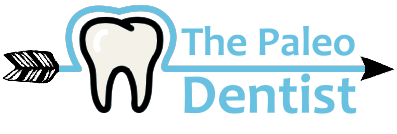
GUM DISEASE AND ALZHEIMER’S – BLOG #64
GUM DISEASE AND ALZHEIMER’S – BLOG #64
Dr. Spiker Davis D.D.S. 713-781-2800 Dr. Matt Guerre D.D.S. 713-781-2800
In collaboration with Dr. John Seger M.D. Cardiologist 713-791-9444
BLOG | ABOUT | MISSION | PALEO | RANT | PRODUCT
I believe the mouth is the WINDOW TO YOUR HEALTH. I also believe that as individuals we need to take care of our health-nobody else is going to do it for us.
Did you know that there are over 1000 species of oral bacteria living inside your mouth? On a good day, the total headcount is about 6 billion bacteria just living in your mouth! The bad ones are just lingering around waiting for the oral conditions to change so that they can take over and cause you lots of GRIEF! These bad boys, as I call them, can cause tooth decay and gum disease but they can also be associated with lots of other health issues. One particular species of bacteria that are closely linked to gum disease is P. gingivalis-the same bacteria that is associated with Alzheimer’s disease!
As a dentist, I am passionate about teaching my patients how the bacteria in your mouth can lead to gum disease and other health issues including Alzheimer’s. I also enjoy teaching people how to prevent many of these issues through good oral hygiene and also how nutrition plays a role!
The “BAD BOYS” in Your Mouth
Everyone has bacteria in their mouth and they all like to live in harmony. But, if oral conditions change, many times the “BAD BOYS” can take over and when they do then there is typically inflammation and or infection and it can spread to other parts of your body. When we discuss oral conditions that change, we are usually referring to changes in diet such as eating anything with sugar or carbohydrates. If you eat either of those two foods, you are feeding the “BAD BOYS” and NOT FEEDING THE “GOOD BOYS”. This means that the bad boys can take
over and mess up what the “GOOD BOYS” are doing. Reminds me of the issues with Ukraine right now-the bad boys are taking over. When they take over, they begin to form plaque on your teeth which will eventually harden into tartar. It is the bacteria in the tartar that can then spread under the gum line causing gum disease of course you are swallowing these bad germs every day and then get into the bloodstream and spread to other parts of the body. The name of the game is to NOT FEED THE BAD BOYS, which means don’t eat sugar or simple carbohydrates! And in addition, you need to brush and floss daily in order to not let the “BAD BOY’S” spread.
What is P. gingivalis?
Porphyromonas gingivalis, or P. gingivalis, is a keystone pathogen in chronic periodontitis (AKA gum disease) and is one of several important bacterial pathogens associated with Alzheimer’s disease. It’s an opportunist gram-negative, anaerobic bacteria. This means they thrive without oxygen, leaving your gum tissue a perfect place to hide.
Gum Disease and Alzheimer’s
Alzheimer’s is one of the biggest mysteries in medicine. The disease often involves the accumulation of proteins called amyloid and tau in the brain, but its exact cause is still unknown.
Research, however, is showing that Alzheimer’s disease arises from defective control of these two proteins, especially amyloid, which accumulates to form large, sticky plaques in the brain. This is similar to plaque on our teeth.
A 2020 analysis led by scientists from the National Institute on Aging (NIA) and reported in the Journal of Alzheimer’s Disease, suggests that the bacteria that cause gum disease are also associated with the development of Alzheimer’s disease and related dementias.
“The analysis revealed that older adults with signs of gum disease and mouth infections at baseline were more likely to develop Alzheimer’s during the study period,” according to the NIA. “Among those 65 years or older, both Alzheimer’s diagnoses and deaths were associated with antibodies against the oral bacterium P. gingivalis, which can cluster with other bacteria such as Campylobacter rectus and Prevotella melaninogenica to further increase those risks.”
How to Prevent Gum Disease and Related Ailments
So now, it is obvious that the mouth is the window to your health and you must control the “BAD BOYS” or suffer the consequences. Now that we’ve established a connection between oral hygiene and Alzheimer’s disease, here’s what you should know in order to help prevent it.
1. Improve your oral hygiene.
If you have any signs of gum disease, such as bleeding, sore or swollen gums, it’s an indication that you need to reexamine your oral hygiene routine and see your dentist/dental hygienist.
2. Consider saliva testing.
Your dentist might recommend saliva testing, a new advancement in modern dentistry which can detect which particular strains of bacteria are present in your mouth and recommend a treatment plan for eradicating it. This is important not only for possibly curbing Alzheimer’s, but also for other systemic health issues related to periodontal disease, including:
- stroke
- respiratory infections
- cardiovascular disease
- gastroinstenial disease
- diabetes
- premature birth
3. Prevent gum disease via nutrition.
There are also ways to prevent gum disease and its progression through the food and nutrients you eat.
Eating a colorful diet full of vegetables, fruits, proteins, and healthy fats can help to reduce inflammation in the body. This works by boosting your intake of omega-3s, and other antioxidant nutrients such as vitamin E, vitamin C, and beta carotene, helping your body to naturally defend itself. Of course, I am a big believer in the Paleo diet since it does not allow for sugar or simple carbohydrates.
Support Your Oral Microbiome Just As You Would Your Gut
Just as we’re learning about the importance of maintaining a healthy gut microbiome, which has gotten a lot of the spotlight lately, it’s also crucial to support your oral microbiome. Both are important for your overall health. A diet full of nutrient-rich, good-for-you vegetables, fruits, proteins, and healthy fats will assure you’re well on your path to a healthy gut, mouth, and brain.
SUMMARY-It is obvious that your mouth is the window to your health. Abnormal conditions in the mouth can be very indicative of other systemic health conditions. In many cases, if your mouth is unhealthy there is a good probability that something somewhere else in your body also needs attention. It’s never too late- Practice good oral hygiene, avoid sugar and go see your dentist and get back on track with regular cleanings. Follow that up by seeing your physician for a physical. Pay SPECIAL ATTENTION TO YOUR DIET AND YOUR ORAL HYGIENE!
“THE MOUTH IS THE WINDOW TO YOUR HEALTH”. BRUSH AND FLOSS TWICE DAILY, AVOID SUGAR
FOR 2022 AND SEE YOUR DENTIST AND PHYSICIAN ON A REGULAR BASIS.
Spiker Davis D.D.S. spiker@thepaleodentist.com John Seger M.D. Matt Guerre D.D.S.
PLEASE SIGN UP BY GOING TO OUR WEBSITE www.thepaleodentist.com
STAY SAFE. WORRY ABOUT NOTHING AND PRAY ABOUT EVERYTHING.

